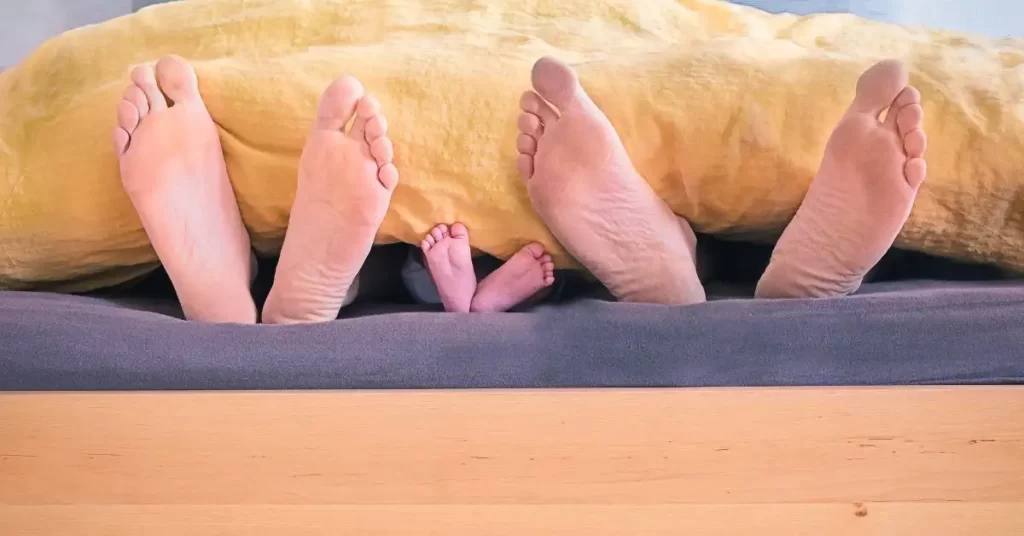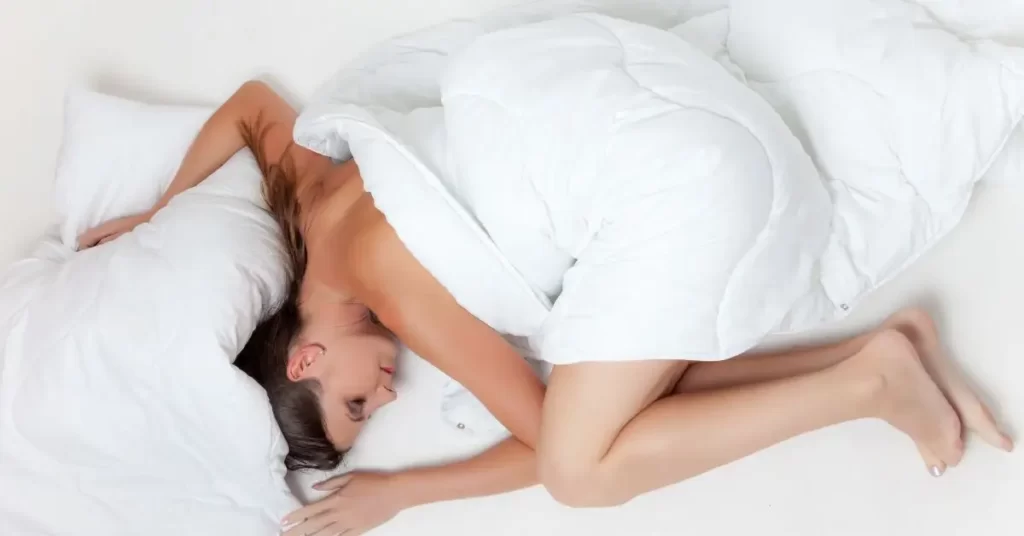Introduction
Sleep refreshes the brain, allowing it to learn & and make memories. Insufficient sleep may lead to car crashes, poor work performance & problems with temper and relationships. Sleep deprivation may raise the risk of high blood pressure, heart disease, diabetes, obesity, depression, & stroke. Some of the most severe problems linked with chronic sleep deprivation are high BP, diabetes, or, you can say, heart attack. Other potential issues include obesity, depression, reduced immune system function and lower sex drive. If we’re tired but can’t sleep, it may be a sign that our circadian rhythm is off. Furthermore, being tired all day & awake at night may also be caused by poor napping habits, anxiety, depression, caffeine consumption, blue light from devices, sleep disorders,& even diet. In this unit, we will learn how to sleep fast.

1. Set the Stage for Sleep: Creating the Optimal Sleep Environment
A good sleep environment that is very dark, quiet, cool, and comfortable can improve your sleep. Make the sleeping area very dark if possible. Use room-darkening shades or heavy, lined draperies; pin drapes closed. Block any light entering the room. Keep a clear path to the bathroom. Block or remove sources of white or blue light (any clock or watch with a white- or blue-lit dial, computer, cell phone, or television). Or wear an eye mask during sleep. Reduce noise: wear earplugs; silence cell phone calls and nonessential alerts. Keep temperatures cool. Avoid watching TV, reading, or working in the sleeping area.
2. Unwind Before Bed: Relaxation Techniques to Help You Drift Off
Many of us live on the fast path, and it’s hard to find ways to unwind, relax & generally slow down. Moreover, Stress can build up & grow if not tackled and may often result in us feeling swamped. Taking time out for yourself is one of the essential things you should do in life. However, many of us are trying to juggle everything else & won’t have any ‘me time’. However, Allowing yourself to relax & unwind is vital to maintaining your mental health. Follow our simple but expert ways to unwind, relax, and take time out. Taking a bath or shower an hour before bed has been shown to relax both the body & mind, in one study lowering both heart rate and blood pressure. Heat relaxes tense, tired muscles and helps you de-stress. Unwinding ensures a great night’s rest! From reducing the chance of heart attacks to preventing depression, relaxing before bed has many benefits. Therefore, try to take some time out for yourself at the end of a busy and help your body unwind before bed.

3. Develop a Sleep Routine: The Importance of Consistency
Sleep consistency refers to the routine or regularity of sleep schedules. It may as intra-individual day-to-day variability in bedtimes/wake-up times/sleep duration or weekday-to-weekend variability in bedtimes/wake-up times/sleep duration (e.g. catch-up sleep and social jetlag). A healthy adult’s recommended amount of sleep is at least seven hours. Set aside at most eight hours for sleep. However, most people only need up to eight hours in bed to rest well. Go to bed and get up simultaneously every day, including weekends. Pushing to a consistent sleep schedule helps you get the right amount of sleep for your unique needs. Going to sleep and waking up simultaneously every day, even on holidays and weekends, can make it easy to fall asleep quickly at night. It can also help you wake up on time and feel refreshed in the morning.
4. Limit Stimulants: Foods and Activities to Avoid Before Bedtime
Experts mentioned waiting at least three hours after you’ve eaten to go to bed. It allows your body time to digest your food so you’re not up at night with an upset stomach, indigestion, or acid reflux. And it helps you stay asleep. Everyone struggles with getting enough sleep these days. Even if you do not have a sleep disorder, you do not need any more challenges to a good night’s rest. Sleep hygiene includes healthy nutrition and choosing your dinners and late-night snacks wisely. Alcohol does help you doze off, but it interrupts the natural sleep cycle later at night. Meals which seem to weigh on your stomach take a long time to digest. However, Fatty, cheesy and fried foods can lead to indigestion and keep you up at night. Avoid things like cheeseburgers, fries, fried foods and large steaks late in the day. Many foods have caffeine, even when you may not expect it. Tea and soda are usually caffeinated unless labelled otherwise. Some ice creams and desserts have espresso, coffee, or chocolate. Chocolate and other foods with caffeine act as stimulants. They make it more challenging to slip into the deeper stages of sleep.

5. Find Your Zen: How Meditation Can Help You Fall Asleep Faster
Zen meditation focuses on posture: open shoulders, upright spine, soft belly, and on the ground (chair or cushion). We follow the breath: one inhalation and one exhalation at a time. Whenever a thought arises, we don’t follow the idea and return to the breath. Zen meditation improves concentration and emotional regulation. Other potential benefits of Zen meditation include Stress and anxiety reduction. Increased self-awareness. Meditation is pondering a type of mind-body therapy. View Source, meditation techniques often combine mental work with physical aspects such as deep breathing. Sleep meditation aims to bring about overall relaxation that helps prepare the body for sleep by targeting both anxious thoughts and physical stress symptoms.
6. Get Moving: Exercise and Its Impact on Sleep Quality
Exercise or activity may also improve your sleep, frequently disrupted by Stress, depression & anxiety. Moderate aerobic exercise is very effective at relieving insomnia. Specifically, it increases the amount of time you spend in deep sleep. Moreover, these exercise benefits may ease stress levels & give a sense of command over your body and life. However, those people who did high-intensity activities such as interval training — lesser one hour before bedtime took longer to fall asleep & had poorer sleep quality.

7. Adjust Your Sleep Position: Optimize Your Position for Optimal Sleep
The best sleeping or resting position is on the side with a pillow or quilt between the knees. Side sleeping may also relieve symptoms for those with neck or back pain. Choose a loft or thickness pillow that matches the distance between the neck & shoulder. Sleep position may either help or hinder that process, hang on how effectively it supports the natural curve structure of the spine. However, It’s also ordinary for the individual to wake up with brand new aches & pains in the morning, most of the time due to sleep position.
8. Explore Natural Remedies: Herbal Teas and Supplements for Sleep
Taking certain teas, such as chamomile & valerian root, may help you relax before sleep. Bedtime teas are herbal tea that constructs with a blend of ingredients to help you ease as you wind down before bed.
Low-caffeine green tea is a popular type of tea known for its distinct flavour and health benefits. However, Unlike other types of tea, these liquid refreshments are generally caffeine-free. Moreover, they contain compounds that may ease Stress & anxiety or encourage feelings of calmness, such as lavender, chamomile, or passionflower. Magnolia tea is manufactured from the dried bark, buds, & stems of the magnolia plant. It is often used as a natural sleep aid in many forms of traditional medicine.
Chamomile tea is a herbal tea with a delicate floral flavour and possible health benefits. It’s made from chamomile, a plant to promote sleep thanks to its soothing effects. Lavender tea is modelled by fermenting the buds of the lavender flower. It creates a vibrant purple beverage with a distinct flavour & aroma. However, Not only is it often enjoyed as a soothing bedtime tea, but some research also supports that lavender could promote relaxation and enhance sleep quality.
9. Avoid Clock-Watching: Tips for Reducing Anxiety and Stress Around Bedtime
It’s important not to get worked up about one stormy night’s sleep because anxiety makes it difficult to fall asleep. Looking at the clock will make people feel anxious about not falling back to sleep. That causes the body to release fight-or-flight hormones, interfering with sleep onset.” By giving yourself a tight deadline to accomplish a task, you insist on a more extended period of concentration. You can schedule several in-depth functions for the same day since nothing beats clock-watching, like being incredibly busy. There’s a simple reason for waking up without an alarm clock: it’s healthier because melatonin regulates our body’s day-night rhythm. When the melatonin concentration in the blood rises in the evening, we tire. When it dips again in the morning, we wake up.
10. Consider Professional Help: When to Seek Medical Advice for Sleep Issues
A sleep specialist doctor specializes in diagnosing & treating sleep disorders. Sleep disorders include sleep apnea, insomnia, narcolepsy, and restless leg syndrome. Sleep specialists are often neurologists, pulmonologists, or psychiatrists who have completed additional training in sleep medicine. Make sure the bedroom is quiet, dark, relaxing, and at a cosy temperature. Delete electronic devices, such as TVs, computers, & smartphones, from the bedroom. Get some exercise. Avoid large meals, caffeine, & alcohol before bedtime. Meet a doctor about any chronic sleep problems. Self-help techniques can effectively resolve chronic insomnia, but your doctor can also recommend treatments for chronic insomnia, including behavioural therapy and medication.
Conclusion
Make sure the bedroom is quiet, dark, relaxing, and at a cosy temperature. Get some exercise. Delete electronic devices, such as TVs, computers, & smartphones, from the bedroom. Sleep deprivation may raise the risk of high blood pressure, heart disease, diabetes, obesity, depression, & stroke. Some of the most severe problems linked with chronic sleep deprivation are high BP, diabetes, or, you can say, heart attack. Other potential issues include obesity, depression, reduced immune system function and lower sex drive. Certain teas, such as chamomile & valerian root, may help you relax before sleep. Bedtime teas are herbal tea that constructs with a blend of ingredients to help you ease as you wind down before bed. Low-caffeine green tea is a popular type of tea known for its distinct flavour and health benefits.




